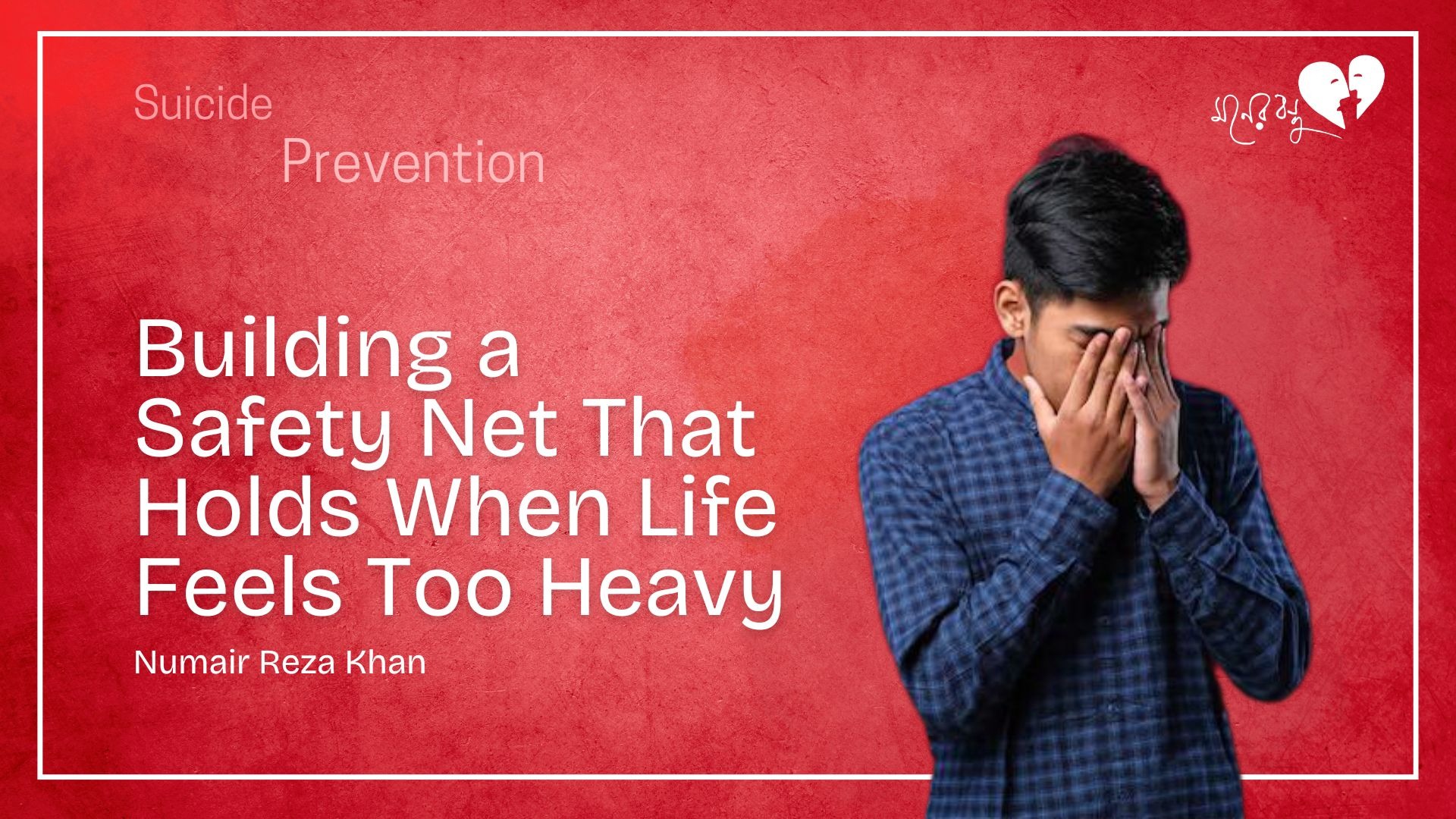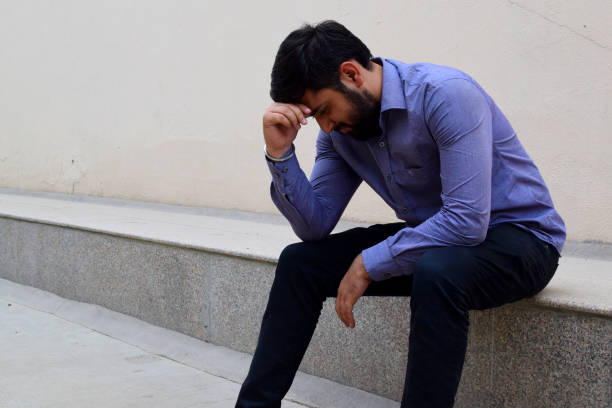
Numair Reza Khan
Sometimes life feels unbearable. The weight of things like academic pressure, family expectations, financial stress, and social challenges can feel crushing. Maybe you’ve had those moments where you feel like you are devoid of happiness, or you’ve watched someone you care about struggle with the intense pressures of university life, career uncertainty, or family dynamics.
If thoughts of suicide have crossed your mind, or if you are aware of someone you know who is struggling, you’re not alone, and there is help available. The solution is not to just pretend these feelings don’t exist or to “have a positive mindset.” Instead, it’s about building real support systems, understanding threatening symptoms, and creating safety nets that actually hold when we need them most.

Here’s how to start building that foundation, for yourself and the people you care about.
Learn to Recognize the Warning Signs-
I used to think suicidal thoughts always looked obvious and dramatic, but the reality is far more complex.
Sometimes it’s the friend who suddenly seems “fine” after weeks of struggle. Sometimes it’s the colleague giving away possessions or talking about feeling like a burden.
The truth is, when someone is in crisis, the signs can be subtle but important to notice.
Watch for these changes:
It’s not about becoming hypervigilant. It’s about staying connected and paying attention when someone’s patterns shift significantly.
Create Spaces for Real Conversations in Our Culture-
We live in a society where “How are you?” is often followed by “I am doing good”, even when nothing is fine.
In Bangladeshi culture, we are often taught to endure silently, to not burden others with our problems, but real connections take place when we make room for honest answers, when we can sit with discomfort, and when we create an environment where others can ask follow up questions.
What helps:
Pro tip:
The question “Do you feel safe right now?” can be lifesaving. Learn to trust your instincts when something feels off.
Build Your Own Emotional Safety Kit:
Taking care of your mental health isn’t selfish, it’s essential.
When you’re struggling, having a plan isn’t just helpful; it can be the difference between making it through a dark moment and not.
What to include:
Your safety kit should be personal, accessible, and practiced. Like a fire drill, these are things you hope you never need, but are glad it’s there.
Remove Barriers to Getting Help in Bangladesh-
Let’s talk about the obstacles that keep people from reaching out in our context.
Shame about mental health, family stigma, financial constraints, and fear of being labeled “crazy” can all prevent someone from seeking help when they need it most.
What you can do:
Stay Connected, Even When It’s Hard-
When someone is suicidal, they often pull away, it is a part of the illness, not a reflection of how they feel about you. Staying gently connected without being overwhelming is an art form, but it matters more than you know.
Ways to stay present:
Know When to Get Professional Help-
Your love and support matter tremendously, but some situations need professional intervention.
Recognizing when you’re in over your head is crucial in getting valuable and efficient support.
Call emergency services (999) or go to the nearest hospital if someone:
Crisis resources in Bangladesh:
Always remember that professional help isn’t a last resort, but another tool in the toolkit.
Start Where You Are. Keep Going.
You don’t need to become a mental health expert overnight. You don’t need to save everyone. All you need is to pay attention, stay connected, and know that help exists. Start with one conversation. Learn one resource. Check on one person. This isn’t about having all the answers; it’s about caring enough to try. Your willingness to have hard conversations and sit with discomfort can be the light someone needs in their darkest moments.
Mental health isn’t just about therapy and medication. It lives in the everyday moments, in the texts you send, the questions you ask, and the space you make for someone to be honest about their pain.
You matter. Your life has value, and help is always available.
ব্লগটি মনের বন্ধু এক্সপার্ট দ্বারা রিভিউয়ের পরে প্রকাশিতএই ব্লগের একমাত্র উদ্দেশ্য মানসিক স্বাস্থ্য বিষয়ক সচেতনতা বৃদ্ধি করা। পাঠকের বোঝার সুবিধার্থে এতে কিছু প্রতীকি ঘটনা ব্যবহার করা হয়েছে।
এই ব্লগ বা এর কোনো অংশ পড়ে কেউ আঘাতপ্রাপ্ত হলে তার জন্য লেখক ও ‘মনের বন্ধু’ দায়ী নয়। মনের ওপর চাপ অনুভব করলে বা মানসিকভাবে ট্রিগার্ড অনুভব করলে দ্রুত মনের বন্ধু বা যেকোনো মানসিক স্বাস্থ্যবিদের সাথে যোগাযোগ করুন।
মনের বন্ধুতে কাউন্সেলিং নিতে যোগাযোগ করুন: ০১৭৭৬৬৩২৩৪৪।
📍: ৮ম ও ৯ম তলা, ২/১৬, ব্লক-বি, লালমাটিয়া, ঢাকা

Mental stress is our emotional and psychological response when we feel overwhelmed, pressured, or threatened by challenging situations.

Though the era has moved on, the society of our country is still dark. I am saying this because almost all families in our country think “What is mental health again? What is depression?

In the bustling streets of Bangladesh, amidst the vibrant culture and rich traditions, lies a silent struggle that often goes unnoticed—the mental health challenges faced by Bangladeshi men. While the

নারীদের গোটা জীবন আসলে হরমোনের ওঠানামা দিয়ে ভীষণ প্রভাবিত। সেই কিশোরীকাল থেকে মধ্যবয়স অবধি, মাঝে প্রেগনেন্সি, সন্তান প্রসব, ব্রেস্ট ফিডিং -- নানা সময়ে, নানা রকমের হরমোনের ওঠানামা নারীর শরীর ও মনকে নান